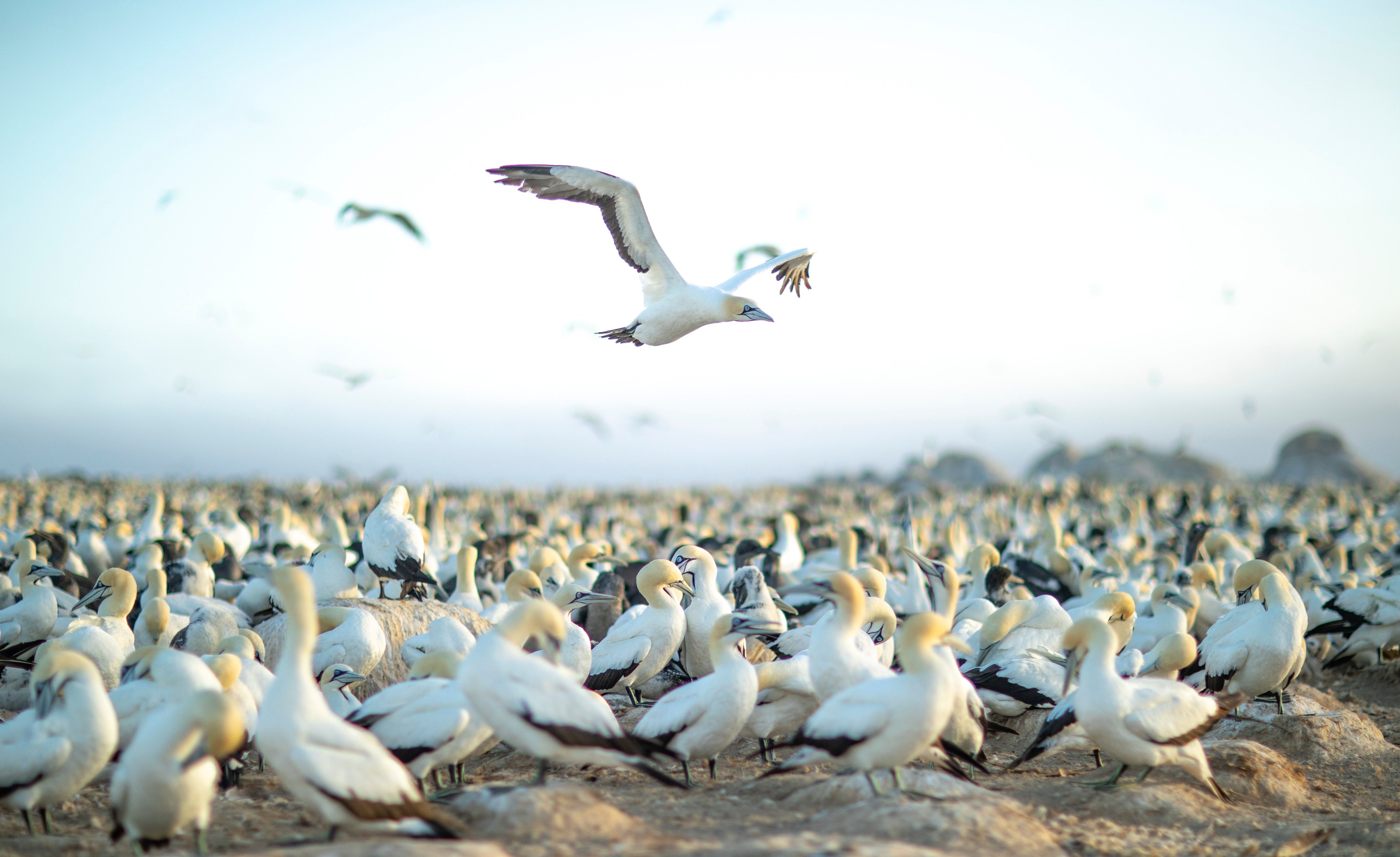“No!” It’s not often I cry out while watching a TV show by myself, but I can’t help it. A juvenile Cape gannet attempting her first flight has just botched it and crash-landed in the sea. This wouldn’t be a problem, were it not for the fact that she’s now a sitting duck – well, gannet – for the surrounding Cape fur seals, who are eyeing her hungrily. I’m only on episode two of BBC One’s gorgeous new high-production nature series, Parenthood, and already I’ve been radicalised.
The five-part programme, combining the exquisite narration from Sir David Attenborough and sublime visual storytelling we’ve come to expect from this kind of affair, charts the challenges of child-rearing for a broad breadth of species across the animal kingdom. Created by Silverback Films – the crack team behind Life on our Planet and The Secret Life of Orangutans – the show was painstakingly filmed over three years across six continents and 23 countries, from the grasslands of Botswana to the remote jungles of Bhutan.
But it’s not the sumptuous shots of a lowland gorilla cradling her newborn that have moved me, nor the sweeping aerial views of a killer whale clan led across midnight waters by their formidable grandmother. It’s the plight of an unremarkable-looking seabird attempting to go it alone for the first time.
Yes, the natural world can be ruthless and cruel; law of the jungle – or ocean – and all that. But the reason for my distress is that what’s happening on screen isn’t natural. David said so himself! “Gannets aren’t usually taken by seals, but in this depleted ocean, prey of any kind is worth having,” he explains in his distinctive, husky tone, which inexplicably cuts through to my conscience like a hot knife through butter.
Human overfishing has driven these birds to fly further and further away from their South African colony to source sardines for their young. The seals are having the same problem; in a habitat where fish are no longer plentiful, they’ve been forced to adapt by attacking endangered gannets instead.
Then there’s the plight of the Californian kelp forests, where overfishing and ever-warming oceans have led to a “plague” of urchins ripping across the sea floor, while the sight of a pale octopus laying her eggs inside a discarded piece of piping prompts another stab of environmental guilt. “In their year-long lives, 13 million tonnes of plastic will have been dumped onto their ocean homes,” Attenborough tells us sombrely, and I feel like weeping. Why are humans so awful?, comes the unwelcome thought on repeat. Why can’t we just learn to share nicely?

Thankfully, the “diaries” at the end of each episode reveal that some humans, at least, aren’t so terrible. These 10-minute segments show the teams who worked tirelessly to obtain the footage, including native guides who’ve spent years building relationships with the animals we see on screen. “It’s a form of love, and love is at the centre of everything,” as one gorilla tracker so poetically puts it.
Elsewhere, we’re shown that parenting is no joke even without man-made obstacles. We journey all over the world in the first episode, following a pride of lionesses in Botswana’s Kalahari Desert teaching their cubs to hunt, and a mother and baby hippo attempting to find food come nightfall in Tanzania’s Ruaha National Park, the infrared camera rendering them luminescent and ethereal as spirits at a seance.
.jpeg)
But the most exhilarating – OK, horrifying – storyline comes courtesy of Namibia’s female African social spider, mother to a batch of spiderlings. She lives and hunts in a pack with her sisters, legs rustling in unison in truly nightmarish fashion. But soon enough, their 1,000-strong army of “insatiable” young start hunting for themselves and... well, let’s just say they give the phrase “keeping it in the family” a whole new meaning.
Nothing like some good old-fashioned matricide to make you grateful that, while our species may be slowly destroying the Earth, at least a human toddler’s most toxic trait is throwing a tantrum in the middle aisle of Lidl.







